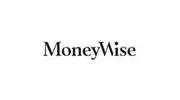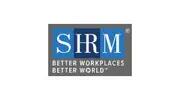Media Coverage

Prittle Prattle News
Over the past 20 years, Richard Romano, president of the foundation and a member of Rutgers Business School’s board of advisors, has helped make more than $1 million in funding available to student and alumni founders.
“The business plan competition is significant in a couple of ways,” said Professor Doug Brownstone, who organizes the competition. “Student entrepreneurs are able to win money to get their businesses accelerated and the top five teams also get mentoring.”
In addition to Romano, the judges for the 2022 competition included John Wilson, who also represents the Sales Executive Club of Northern New Jersey Foundation; Sharon Lydon, Rutgers Business School’s associate dean of alumni and corporate engagement; and Carolyn Lange, chief financial officer of the Community Foundation of New Jersey.
“The business plan competition is significant in a couple of ways,” said Professor Doug Brownstone, who organizes the competition. “Student entrepreneurs are able to win money to get their businesses accelerated and the top five teams also get mentoring.”
In addition to Romano, the judges for the 2022 competition included John Wilson, who also represents the Sales Executive Club of Northern New Jersey Foundation; Sharon Lydon, Rutgers Business School’s associate dean of alumni and corporate engagement; and Carolyn Lange, chief financial officer of the Community Foundation of New Jersey.

MSN
Jeffrey Robinson, Rutgers Business School provost and executive vice-chancellor, and co-founder of the Center for Urban Entrepreneurship and Economic Development, said at the Small Business Playbook virtual summit that one big mistake business owners make is to not figure out pricing on new products until it is too late. At a time of high inflation, entrepreneurs need to be basing any pricing of new items on a detailed analysis of the costs that go into producing it. A traditional way that businesses set pricing — decide on the product and then once it is available look at what competitors are charging — is not the way to operate in this economy. Inflation requires that small business owners set price by, first and foremost, understanding their costs.
"All those prices along the supply chain have gone up," Robinson said. "The shipping costs ... anything that has any component of transportation involved, those costs have gone up. So assessing and valuing your product or service that you're providing along those costs, before you set the price, allows you to set the price at the right level," he said.
And then comes the hard part: explaining it to the customer. Robinson says the direct relationship that small businesses have with their customers should be seen as an advantage, too.
"We have relationships. Talk," he said. "Explore. You've got to explain to them that the costs have gone up for these components. 'In order for me to do this, I have to change some pricing,'" he said.
"All those prices along the supply chain have gone up," Robinson said. "The shipping costs ... anything that has any component of transportation involved, those costs have gone up. So assessing and valuing your product or service that you're providing along those costs, before you set the price, allows you to set the price at the right level," he said.
And then comes the hard part: explaining it to the customer. Robinson says the direct relationship that small businesses have with their customers should be seen as an advantage, too.
"We have relationships. Talk," he said. "Explore. You've got to explain to them that the costs have gone up for these components. 'In order for me to do this, I have to change some pricing,'" he said.

Yahoo! Finance
Rutgers University – Newark has named Jeffery Robinson as the University Provost and executive chancellor.
Robinson, a Professor of Management and Global Business at Rutgers Business School (RBS), has been with the University since 2008 and started the position July 1. The professor is well known for his award-winning teaching and leadership roles. Additionally, Robinson specializes in management and entrepreneurship and serves as the Academic Director of the Center for Urban Entrepreneurship and Economic Development (CUEED).
Last year, Rutgers University named Robinson the Prudential Chair in Business, a chair established through a gift from Prudential Financial Inc., which helps to advance a multidisciplinary approach to business education with a focus on science, technology, social justice and ethics.
“I am honored to follow in the footsteps of Dr. Jerome Williams,” Robinson said in a Rutgers University release last December. “His pioneering work at the intersection of business and society has been inspirational to me and numerous other scholars. In many ways, my academic work and scholarship shares themes that Jerome made prominent throughout his career by connecting social justice and community concerns with value creation in the economy and society.”
Robinson, a Professor of Management and Global Business at Rutgers Business School (RBS), has been with the University since 2008 and started the position July 1. The professor is well known for his award-winning teaching and leadership roles. Additionally, Robinson specializes in management and entrepreneurship and serves as the Academic Director of the Center for Urban Entrepreneurship and Economic Development (CUEED).
Last year, Rutgers University named Robinson the Prudential Chair in Business, a chair established through a gift from Prudential Financial Inc., which helps to advance a multidisciplinary approach to business education with a focus on science, technology, social justice and ethics.
“I am honored to follow in the footsteps of Dr. Jerome Williams,” Robinson said in a Rutgers University release last December. “His pioneering work at the intersection of business and society has been inspirational to me and numerous other scholars. In many ways, my academic work and scholarship shares themes that Jerome made prominent throughout his career by connecting social justice and community concerns with value creation in the economy and society.”

NJCPA
The 150-hour credit requirement may scare off a few students, but I think most students who are interested in accounting are not deterred by the requirement. Many students finish the 150 hours during their undergraduate education — they either double major or just take miscellaneous extra credits each semester or some come in with AP credits. When students go this route, time and cost are not as much of an issue — they are often finishing the 150 credits within about four years and there is not a significant extra cost. However, I worry that some students are not getting the full benefit of their education with this approach — cramming so many classes into four years.
I wish that more students would pursue a master’s degree in the completion of their 150 credit hours — I’ve always said that if you are going to take 30 additional credits, you might as well turn that into a degree with a focus on accounting or business! But with the master’s degree, I do think time and cost are a deterrent — some students don’t want to spend the extra time to complete the degree, or the cost is simply too much.
But schools and firms can encourage students — schools can make students aware of the value of a master’s program and provide scholarships to help defray the cost. And employers can also provide scholarships and tuition reimbursement, as well as the flexibility to allow their new hires to pursue a master’s degree while working, if necessary.
I wish that more students would pursue a master’s degree in the completion of their 150 credit hours — I’ve always said that if you are going to take 30 additional credits, you might as well turn that into a degree with a focus on accounting or business! But with the master’s degree, I do think time and cost are a deterrent — some students don’t want to spend the extra time to complete the degree, or the cost is simply too much.
But schools and firms can encourage students — schools can make students aware of the value of a master’s program and provide scholarships to help defray the cost. And employers can also provide scholarships and tuition reimbursement, as well as the flexibility to allow their new hires to pursue a master’s degree while working, if necessary.
The Inquirer
Mahmud Hassan, professor at the Rutgers University Business School and a drugstore expert, warns: “There are too many pharmacies in the country.”
“Rite Aids are facing stiff competition from Walgreens, CVS, Amazon and Walmart and the mail-order services,” Hassan said. “They are not selling enough. They have low revenues and a high-cost structure.”
“Rite Aids are facing stiff competition from Walgreens, CVS, Amazon and Walmart and the mail-order services,” Hassan said. “They are not selling enough. They have low revenues and a high-cost structure.”

HerMoney
Lisa S. Kaplowitz, assistant professor of professional practice of finance at Rutgers Business School, includes a postscript on her outgoing emails that states: “I am sending this email at a time that is convenient for me and realize you may be juggling other priorities right now. Please read and respond at a time that is convenient for you.”
Kaplowitz says she saw something similar and began including the P.S. in her outgoing messages.
Kaplowitz says she saw something similar and began including the P.S. in her outgoing messages.

WTOP News
Ethereum, on the other hand, “aims to function as a ‘decentralized world computer,’ which allows for the implementation of decentralized applications and alternative forms of utility,” says Perfumo. Put simply, Ethereum is like iOS or Android, a platform that developers are using to build applications, says Merav Ozair, blockchain expert and fintech professor at Rutgers Business School.

CNBC
CNBC, First in Business Worldwide, today announced the lineup for Small Business Playbook: Opportunity Amidst Uncertainty, which will take place online on Wednesday, August 3rd at 1pm ET.
As inflation continues to reach record highs and the possibility of recession looming, it is more important than ever for entrepreneurs to think strategically and bolster all facets of their business to withstand today’s turbulence and emerge stronger for a better tomorrow. The CNBC Small Business Playbook virtual summit will offer insight and advice from top experts on how businesses can hedge against inflation, supply chain disruptions, labor challenges, and more.
CNBC Small Business Playbook speakers include Jeffrey Robinson, Provost and Executive Vice-Chancellor, Rutgers Business School
As inflation continues to reach record highs and the possibility of recession looming, it is more important than ever for entrepreneurs to think strategically and bolster all facets of their business to withstand today’s turbulence and emerge stronger for a better tomorrow. The CNBC Small Business Playbook virtual summit will offer insight and advice from top experts on how businesses can hedge against inflation, supply chain disruptions, labor challenges, and more.
CNBC Small Business Playbook speakers include Jeffrey Robinson, Provost and Executive Vice-Chancellor, Rutgers Business School

The Wall Street Journal
Big businesses are pushing hard to wring profits out of the smaller companies that supply them with goods and services. One type of deal, known as a supply-chain finance rebate, has come under the spotlight of accounting groups for obscuring who benefits most from the arrangements and whether that masks true financial risk.
Much of the industry shuns rebates, said Rudolf Leuschner, director of the master of supply-chain management program at Rutgers Business School. The industry relies on a 2004 U.S. Securities and Exchange Commission speech as the seminal guide to best practices. Bankers and accountants typically interpret the speech as advising against rebates or financial incentives.
Much of the industry shuns rebates, said Rudolf Leuschner, director of the master of supply-chain management program at Rutgers Business School. The industry relies on a 2004 U.S. Securities and Exchange Commission speech as the seminal guide to best practices. Bankers and accountants typically interpret the speech as advising against rebates or financial incentives.

NJCPA
Schools are perfect outlets for mentoring by offering information sessions and seminars. They also provide specific mentoring opportunities by pairing students with professionals in the field — alumni are a great resource in this area. Others can learn from Rutgers Business School’s example, which offers one-on-one mentoring opportunities as part of a Road to CPA program.
Guidance need not end upon graduation — accounting firms and corporations can also provide one-on-one mentoring. Upon joining an organization, new hires can be paired with more-experienced colleagues.
Guidance need not end upon graduation — accounting firms and corporations can also provide one-on-one mentoring. Upon joining an organization, new hires can be paired with more-experienced colleagues.

Northjersey.com
"Influence marketing has been around forever," said Stacy Smollin Schwartz, a marketing professor at Rutgers Business School. It is, she said, a "very effective tool," a tool that "social media knocked out of the park." Last year, 19% of Americans bought something because an influencer recommended it, according to Harvard Business Review. Among those under 25 years old, the number rose to 36%.

U.S. News & World Report
Many investors are wary of cryptocurrencies because they are still unfamiliar and, as yet, largely unregulated. Although bad actors and scams may ding the reputation of the entire ecosystem, as far as the overall crypto industry is concerned, there are also "a lot of good projects and good people" working on digital asset products, says Merav Ozair, blockchain expert and fintech professor at Rutgers Business School.

CBS News
The recent cryptocurrency crash is a major reason behind cooling interest in NFTs, said blockchain expert Merav Ozair, who teaches financial technology at Rutgers University. That's because buyers often use bitcoin, ethereum or other digital currencies to purchase NFTs, and falling crypto prices reduce their purchasing power.

Yahoo!
"Our corporate partners like Walker & Dunlop are extremely important because of the experiential learning opportunities and support they provide," Lei Lei, dean of Rutgers Business School, said in Rutgers' announcement of the new sponsorship. "Our students will be able to apply their knowledge in real-world situations offering them powerful learning experiences and strengthening their time in the classroom."
"It is an honor for Rutgers to have Walker & Dunlop as a corporate partner, given its long history of excellence and its commitment to diversity in commercial real estate," said Morris A. Davis, the Paul J. Profeta Chair of Real Estate and academic director for the Rutgers Center for Real Estate. "We look forward to exploring all the possible benefits to our students."
"It is an honor for Rutgers to have Walker & Dunlop as a corporate partner, given its long history of excellence and its commitment to diversity in commercial real estate," said Morris A. Davis, the Paul J. Profeta Chair of Real Estate and academic director for the Rutgers Center for Real Estate. "We look forward to exploring all the possible benefits to our students."

Yahoo! Finance
Merav Ozair, a blockchain expert and FinTech professor at Rutgers Business School, says what makes this crypto winter different from previous downturns is that its speculative nature isn’t completely to blame.
“Today, the crypto market is very much correlated and in tune with everything that is happening in the economy and with other asset classes,” says Ozair. “So if everything is suffering, the crypto market will also suffer.”
“Today, the crypto market is very much correlated and in tune with everything that is happening in the economy and with other asset classes,” says Ozair. “So if everything is suffering, the crypto market will also suffer.”

DiversityInc.
During a webinar titled “Ensuring Reproductive Health: What Are Companies Doing,” presented by Rutgers University’s Center for Women in Business, attendees wrote how they feel about the decision, which appeared in a word cloud on the screen. Those words included disgusted, enraged, angry, disappointed and outraged, just to name a few.
Yana van der Meulen Rodgers, a professor in the Department of Labor Studies and Employment Relations at Rutgers University and Faculty Director of the Center for Women and Work at Rutgers, laid out the economic implications of abortion bans and restrictions from a microeconomic aspect, a mesoeconomic aspect and a macroeconomic aspect, showing the implications for local economies in states with and without abortion bans.
Yana van der Meulen Rodgers, a professor in the Department of Labor Studies and Employment Relations at Rutgers University and Faculty Director of the Center for Women and Work at Rutgers, laid out the economic implications of abortion bans and restrictions from a microeconomic aspect, a mesoeconomic aspect and a macroeconomic aspect, showing the implications for local economies in states with and without abortion bans.

Global Herald
It is never too soon to discuss ethics in the #metaverse. Rutgers Business School Blockchain Expert & FinTech Professor Merav Ozair joins Jill Malandrino on Nasdaq #TradeTalks to discuss.

WalletHub
Is it fair for consumers to assume that the most popular credit cards are the best credit cards?
No, not at all. Popularity could be due to many different reasons. A new card, to compete, may offer some of the best privileges, awards, service, etc. along with easier credit card approval and obviously would not rank among the most well-known cards. Eventually, the best card for an individual depends on the functionality and needs of the individual.
What do you think are the biggest factors that affect the popularity of a credit card offer?
Several factors may be at play. Popularity can be traced to easy acceptance with different vendors worldwide. Some credit card issuers offer teasers such as low-interest rate offers, cash back on purchases, various rewards programs along with balance transfer offers. However, if there is an annual fee, then it could temper demand.
No, not at all. Popularity could be due to many different reasons. A new card, to compete, may offer some of the best privileges, awards, service, etc. along with easier credit card approval and obviously would not rank among the most well-known cards. Eventually, the best card for an individual depends on the functionality and needs of the individual.
What do you think are the biggest factors that affect the popularity of a credit card offer?
Several factors may be at play. Popularity can be traced to easy acceptance with different vendors worldwide. Some credit card issuers offer teasers such as low-interest rate offers, cash back on purchases, various rewards programs along with balance transfer offers. However, if there is an annual fee, then it could temper demand.

Goblin Crypto
Blockchain expert and Rutgers Business School Fintech Professor Dr. Merav Ozair holds illustrious credentials in the cryptocurrency world. In addition to her role at the university, she serves as an academic advisory board member for the International Association for Trusted Blockchain Applications (INATBA), and as editor-in-chief of the World Scientific Series in FinTech at World Scientific Publishing.
In an interview with GoblinCrypto last week, Ozair shared her assessment of the Responsible Financial Innovation Act proposed in June by Sens. Cynthia Lummis (R-WY) and Kirsten Gillibrand (D-NY). She said the law — which could pass as early as next year — could carry big consequences for crypto developers, who would see a vast swath of cryptos and non-fungible tokens (NFTs) reclassified as securities.
In an interview with GoblinCrypto last week, Ozair shared her assessment of the Responsible Financial Innovation Act proposed in June by Sens. Cynthia Lummis (R-WY) and Kirsten Gillibrand (D-NY). She said the law — which could pass as early as next year — could carry big consequences for crypto developers, who would see a vast swath of cryptos and non-fungible tokens (NFTs) reclassified as securities.

MSN
While some may be concerned about reduced competition, Merav Ozair, blockchain expert and a fintech professor at Rutgers Business School, said "the fact that you have more competitors doesn't mean that it's better if you're not providing good service and good products."
"It's always better to have more competitors," she said. "The free markets are all about competition. But are those small players better? Do they provide you better service? In the case of Celsius, probably not."
"It's always better to have more competitors," she said. "The free markets are all about competition. But are those small players better? Do they provide you better service? In the case of Celsius, probably not."

Protocol
“The statement is insufficient,” said activist and Rutgers Business School professor Jeana Wirtenberg. “If it’s disingenuous and they don’t put any action behind it, it can cause more harm than good.”

Yahoo! Sports
Just like with traditional assets, those who have more money are more likely to be investors, says Merav Ozair, a blockchain expert and FinTech professor at Rutgers Business School.
“I'm not surprised to hear that,” Ozair said after reviewing the Fed’s figures. “This is exactly in line with what I know about this ecosystem and the research that I'm doing."
Ozair explained that those who use crypto for investing are “basically looking for profit,” so they treat it like other asset classes, like stocks and futures.
“I'm not surprised to hear that,” Ozair said after reviewing the Fed’s figures. “This is exactly in line with what I know about this ecosystem and the research that I'm doing."
Ozair explained that those who use crypto for investing are “basically looking for profit,” so they treat it like other asset classes, like stocks and futures.

Radiology Business
Medical writer Joe Hannan speaks with a supply chain specialist at Rutgers Business School who points out that healthcare’s life-and-death character doesn’t exempt it from the basic forces of supply and demand.
The pandemic supercharged healthcare demand, notes David Dreyfus, PhD, just as similar pressures bore down across industries due to clogged shipping lanes, paralyzed ports, labor shortages and, not least, Chinese factories closed by lockdowns.
More than a few hospitals and health systems reacted by overordering.
“Then it really falls to these distributors, these manufacturers, to somehow ethically distribute” the coveted supplies, Dreyfus tells Hannan. “They know everybody’s going to be getting less than what they’re asking for because people are trying to hoard.”
The pandemic supercharged healthcare demand, notes David Dreyfus, PhD, just as similar pressures bore down across industries due to clogged shipping lanes, paralyzed ports, labor shortages and, not least, Chinese factories closed by lockdowns.
More than a few hospitals and health systems reacted by overordering.
“Then it really falls to these distributors, these manufacturers, to somehow ethically distribute” the coveted supplies, Dreyfus tells Hannan. “They know everybody’s going to be getting less than what they’re asking for because people are trying to hoard.”

Radiology Business
Medical writer Joe Hannan speaks with a supply chain specialist at Rutgers Business School who points out that healthcare’s life-and-death character doesn’t exempt it from the basic forces of supply and demand.
The pandemic supercharged healthcare demand, notes David Dreyfus, PhD, just as similar pressures bore down across industries due to clogged shipping lanes, paralyzed ports, labor shortages and, not least, Chinese factories closed by lockdowns.
More than a few hospitals and health systems reacted by overordering.
“Then it really falls to these distributors, these manufacturers, to somehow ethically distribute” the coveted supplies, Dreyfus tells Hannan. “They know everybody’s going to be getting less than what they’re asking for because people are trying to hoard.”
The pandemic supercharged healthcare demand, notes David Dreyfus, PhD, just as similar pressures bore down across industries due to clogged shipping lanes, paralyzed ports, labor shortages and, not least, Chinese factories closed by lockdowns.
More than a few hospitals and health systems reacted by overordering.
“Then it really falls to these distributors, these manufacturers, to somehow ethically distribute” the coveted supplies, Dreyfus tells Hannan. “They know everybody’s going to be getting less than what they’re asking for because people are trying to hoard.”

Moguldom Nation
Dr. Merav Ozair, a blockchain expert and fintech professor at Rutgers Business School, echoed Bryant’s advice in an interview with DebtHammer.
“Never take a loan to invest. Only invest money you have to spare,” Ozair told DebtHammer. “A lot of people think they can become a millionaire in a day, which never happens.”
Ozair also told DebtHammer potential investors should never leverage an asset — like their home or car — on a speculative investment.
“Never take a loan to invest. Only invest money you have to spare,” Ozair told DebtHammer. “A lot of people think they can become a millionaire in a day, which never happens.”
Ozair also told DebtHammer potential investors should never leverage an asset — like their home or car — on a speculative investment.

MDLinx
David Dreyfus, PhD, an assistant professor in the supply chain management department of Rutgers Business School, told MDLinx that healthcare is subject to the same supply-chain pressures as other industries. COVID-19 shifted demand patterns, making it difficult for inventory managers to determine accurate levels of groceries and PPE to order.
Combine fickle demand with congested ports, labor shortages, China’s zero COVID policy shuttering factories, plus inflation, and you’ve got a recipe for a supply-chain crisis.
“Even if things are going well here in the US, we rely so much on the world to supply us different parts and materials that complications can still arise.”
Combine fickle demand with congested ports, labor shortages, China’s zero COVID policy shuttering factories, plus inflation, and you’ve got a recipe for a supply-chain crisis.
“Even if things are going well here in the US, we rely so much on the world to supply us different parts and materials that complications can still arise.”

The Christian Science Monitor
Latinos own more businesses nationwide than any racial or ethnic group other than white Americans, and they start more businesses than any other group, opening them at four times the rate of other demographics, says Arturo Osorio, associate professor of entrepreneurship at Rutgers University in New Jersey. He says they are undaunted by the fact that most new businesses fail within 10 years because, often, they have no other choice.

MoneyWise
Just like with traditional assets, those who have more money are more likely to be investors, says Merav Ozair, a blockchain expert and FinTech professor at Rutgers Business School.
“I'm not surprised to hear that,” Ozair said after reviewing the Fed’s figures. “This is exactly in line with what I know about this ecosystem and the research that I'm doing."
Ozair explained that those who use crypto for investing are “basically looking for profit,” so they treat it like other asset classes, like stocks and futures.
“I'm not surprised to hear that,” Ozair said after reviewing the Fed’s figures. “This is exactly in line with what I know about this ecosystem and the research that I'm doing."
Ozair explained that those who use crypto for investing are “basically looking for profit,” so they treat it like other asset classes, like stocks and futures.

Money Geek
Many students are not educated on credit card use, managing spending and debt. What tips do you have for new credit card holders or parents looking to teach their students how to properly use a credit card?
Advice that parents should pass on to their children regarding proper credit card use would be:
Don’t use a credit card to make a small purchase such as a pack of gum or bottle of soda. The reason being that the interest and any charges by the credit card company could possibly be greater than the cost of the item itself. There is always that temptation to purchase a small item using a credit card and the cost could end up being quite high.
Don’t skip a credit card payment. There is always the situation where an individual may be short of cash in order to pay the amount due on a credit card bill. Skipping a payment will hurt the individual’s credit score and if more payments are missed, the credit card company may revoke the card privileges. Find some way somehow to make the payment.
Advice that parents should pass on to their children regarding proper credit card use would be:
Don’t use a credit card to make a small purchase such as a pack of gum or bottle of soda. The reason being that the interest and any charges by the credit card company could possibly be greater than the cost of the item itself. There is always that temptation to purchase a small item using a credit card and the cost could end up being quite high.
Don’t skip a credit card payment. There is always the situation where an individual may be short of cash in order to pay the amount due on a credit card bill. Skipping a payment will hurt the individual’s credit score and if more payments are missed, the credit card company may revoke the card privileges. Find some way somehow to make the payment.

CNN Business
“You’re signaling freshness, you’re signaling ‘natural’… all the good things that make food good,” said Ashwani Monga, a professor of marketing at Rutgers Business School.
“If I’m a grocery store then that’s how I want you to see my store — logistically, if this person can manage fresh flowers and sell them, this person isn’t going to sell stale food.”
“If I’m a grocery store then that’s how I want you to see my store — logistically, if this person can manage fresh flowers and sell them, this person isn’t going to sell stale food.”

NextAdvisor
“DeFi allows for applications, which are built using smart contracts — the idea behind DeFi is that all the products and services that are in the economy today can be self-executed using an automated code,” says Dr. Merav Ozair, blockchain expert and a fintech professor at Rutgers Business School.
There’s also the chance that DeFi projects can have issues with the foundational smart contracts, says Ozair. “Any application can have bugs,” she says. “You have to be careful because sometimes the algorithm can go haywire. Codes [smart contracts] are just rules. It’s not really smart — it’s as smart as the person who wrote it.”
Ozair adds that without a central authority checking the numerous algorithms and DeFi projects for issues before they become publicly available, there’s always a chance that consumers could bear the brunt of an algorithm gone wild.
There’s also the chance that DeFi projects can have issues with the foundational smart contracts, says Ozair. “Any application can have bugs,” she says. “You have to be careful because sometimes the algorithm can go haywire. Codes [smart contracts] are just rules. It’s not really smart — it’s as smart as the person who wrote it.”
Ozair adds that without a central authority checking the numerous algorithms and DeFi projects for issues before they become publicly available, there’s always a chance that consumers could bear the brunt of an algorithm gone wild.

SHRM
Women are more likely than men to prefer hybrid or remote work schedules.
Specifically, 1 in 3 women prefer to work fully remotely and 1 in 2 women desire a hybrid schedule, according to a 2021 report by management consulting company Gartner. As a result, women are less likely to be in the office beyond the days they are scheduled to be onsite.
Women who work remotely could face barriers that impede their career advancement, such as:
Reduced access to informal networks and critical assignments.
Fewer mentoring and sponsorship opportunities.
False assumptions about their commitment.
However, women's employee resource groups (ERGs) are uniquely positioned to reveal the barriers that female employees face and to advocate for workplace improvements.
Specifically, 1 in 3 women prefer to work fully remotely and 1 in 2 women desire a hybrid schedule, according to a 2021 report by management consulting company Gartner. As a result, women are less likely to be in the office beyond the days they are scheduled to be onsite.
Women who work remotely could face barriers that impede their career advancement, such as:
Reduced access to informal networks and critical assignments.
Fewer mentoring and sponsorship opportunities.
False assumptions about their commitment.
However, women's employee resource groups (ERGs) are uniquely positioned to reveal the barriers that female employees face and to advocate for workplace improvements.

CEO Magazine
Alexandra Skinner, editor of the London-based CEO Magazine, conducted an interview with Farrokh Langdana, professor of finance and economics, and the director of Rutgers Executive MBA program for its Spring 2022 issue. "“The secret of our success is really quite simple. During the four semesters (20 months) the students spend at the Rutgers EMBA Powerhouse, our only goal is to constantly deliver a program that will (i) not waste their valuable time and (ii) add value to their lives. Plain and simple.”

Northjersey.com
"It is likely that they got paid," said Stacy Smollin Schwartz, an award-winning marketing professor at Rutgers Business School, where she leads an online Master of Science degree program in digital marketing. "It's not so much that they posted about how cute their kids are. But posting that this is the greatest mall they have ever been to. Why would they put out such an endorsement?"
Celebrities, she said, go out all the time but usually won't share locations or brand names. "More likely if they are not getting money for it, they will be a little less conspicuous." They may, she said, let you know they went out shopping but not where.
Celebrities, she said, go out all the time but usually won't share locations or brand names. "More likely if they are not getting money for it, they will be a little less conspicuous." They may, she said, let you know they went out shopping but not where.

New Jersey Business
Rutgers Business School professor Jeffrey Robinson, an internationally known author and co-founder of the Center for Urban Entrepreneurship and Economic Development, has been named Rutgers University—Newark’s new provost and executive vice chancellor.
“I am excited to contribute to the mission of Rutgers University-Newark as an anchor institution in the city and region,” Robinson said. “Specifically, I look forward to focusing on innovation and economic development along with faculty recruitment and retentions. I am particularly drawn to RU-Newark’s strengths in the arts, STEM, and entrepreneurship.”
“I am excited to contribute to the mission of Rutgers University-Newark as an anchor institution in the city and region,” Robinson said. “Specifically, I look forward to focusing on innovation and economic development along with faculty recruitment and retentions. I am particularly drawn to RU-Newark’s strengths in the arts, STEM, and entrepreneurship.”

University Business
Thirty years ago, a group of female athletes sued Brown University in a landmark case (Cohen v. Brown University) that helped paved the way for women to gain equal footing with men in sports through Title IX. One of the plaintiffs was Lisa Kaplowitz, a 17-year-old star gymnast who testified about the opportunities she lost when the program was initially cut and the unfairness of that decision.
“During my testimony to show the inequalities, I held up a pair of men’s gray boxer briefs,” Kaplowitz recalls. “These were standard-issue shorts for men and women. Obviously, they didn’t fit women so well. I said, ‘This is a sign that their assets are getting protected and ours aren’t.'”
“During my testimony to show the inequalities, I held up a pair of men’s gray boxer briefs,” Kaplowitz recalls. “These were standard-issue shorts for men and women. Obviously, they didn’t fit women so well. I said, ‘This is a sign that their assets are getting protected and ours aren’t.'”

Fortune
Title IX’s influence extends beyond professional athletics and into corporate America. Lisa Kaplowitz, now executive director of the Rutgers Center for Women in Business, was part of a 1992 Title IX lawsuit. In 1991, the then-17-year-old gymnast was recruited by Brown University. She turned down other full-ride scholarship offers to attend the Ivy League—only to find out Brown had cut the women’s gymnastics team. Kaplowitz, along with other female student-athletes, filed suit against the school, and the case made it to the Supreme Court, which accepted a lower court ruling that forced Brown to settle and fully reinstate the cut women’s athletic programs.

Cointelegraph
Regarding money laundering, the crypto industry’s “numbers are not large,” Merav Ozair, fintech faculty member at Rutgers Business School, told Cointelegraph, “but we don’t want them to grow either.” Binance is the industry’s largest exchange, “and we want them to have better compliance.” It troubles her that Binance has been one of the last major crypto exchanges to embrace Know Your Customer (KYC) and AML regulations globally — as an industry leader they should be one of the first to set an example.

Newsbreak
Newsbreak, Fifty years after Title IX, girls still face barriers in sports equity, Lisa S. Kaplowitz
Schools with unequal representation in their athletic programs can still be in compliance with Title IX if they demonstrate that they're accommodating all the interests and abilities or expanding the opportunities of the underrepresented sex, said Lisa Kaplowitz, Assistant Professor and Co-Founder of the Center for Women in Business at Rutgers Business School and former Title IX plaintiff.
According to Kaplowitz, large participation gaps are common. Across the country, most institutions violate Title IX protections, she said.
"These schools need to invest in women's sports," Kaplowitz added. "Practice time preferences need to be better, travel budgets need to be better, you pay the coaches better, and when you look at the collegiate level, scholarship money has to improve and become more equal." Representation and visibility of female athletes are also important for encouraging greater participation among young women, she said: "When you see a pathway, you can develop the pipeline."
According to Kaplowitz, large participation gaps are common. Across the country, most institutions violate Title IX protections, she said.
"These schools need to invest in women's sports," Kaplowitz added. "Practice time preferences need to be better, travel budgets need to be better, you pay the coaches better, and when you look at the collegiate level, scholarship money has to improve and become more equal." Representation and visibility of female athletes are also important for encouraging greater participation among young women, she said: "When you see a pathway, you can develop the pipeline."

Claims Journal
“We typically think an expert has the skills and confidence to perform despite adverse conditions,” said Jerry Kim, coauthor of the study and an assistant professor at Rutgers Business School. “But the reality is that confidence is built upon a foundation that can be threatened. Particularly in a time of constant feedback, every expert is subject to extreme scrutiny.”

NJCPA
The New Jersey Society of Certified Public Accountants (NJCPA) is pleased to announce that 41 individuals are the recipients of its 2022 Ovation Awards. The awards represent outstanding achievements in seven categories: Diversity, Equity & Inclusion; Exceptional Educators; Emerging Leaders; Impact; Innovation; Lifetime Leader and Women to Watch.

Built In
DeFi’s biggest impact, however, lies in the ways it can serve those who the traditional financial institutions overlook, according to Merav Ozair, a fintech professor at Rutgers University’ business school and blockchain technology expert.
Ozair believes DeFi adoption will start in countries without stable financial institutions. In 2021, El Salvador became the first country to accept Bitcoin as legal tender to help the majority of its citizens who don’t have access to traditional financial services. Venezuela also launched a state-backed coin called Petro as an alternative to the highly inflated value of the bolívar. Its success, however, remains limited.
Ozair believes DeFi adoption will start in countries without stable financial institutions. In 2021, El Salvador became the first country to accept Bitcoin as legal tender to help the majority of its citizens who don’t have access to traditional financial services. Venezuela also launched a state-backed coin called Petro as an alternative to the highly inflated value of the bolívar. Its success, however, remains limited.

NJBIZ
“Our corporate partners are extremely important because of the experiential learning opportunities and support they provide,” Lei Lei, dean of Rutgers Business School, said of the partnership. “The opportunity for our students to apply their knowledge in real-world situations offers them a powerful learning experience that strengthens their time in the classroom.”

Yahoo! Finance
“It is unusual for companies to invest in a supplier, especially a supplier that that company is not even in business with yet,” said Kevin Lyons, Ph.D. Associate Professor of Professional Practice, Supply Chain Management and Director, Public Private Community Partnership Program, Rutgers Business School, who supported PSEG in the development and implementation of the program. “PSEG is meeting their pledge, recruiting state-based, diverse companies, then mentoring these suppliers and giving them opportunities for work.”

Rutgers Today
“‘You don’t look like a CFO,’ the venture capitalist told me as I walked him through our company's valuation during a funding round.”
- Lisa S. Kaplowitz, Assistant Professor, Finance and Executive Director, Rutgers Center for Women in Business
Title IX not only gave me the opportunity to play sports, it helped me find my voice and feel confident throughout my professional career in the male-dominated finance industry.
- Lisa S. Kaplowitz, Assistant Professor, Finance and Executive Director, Rutgers Center for Women in Business
Title IX not only gave me the opportunity to play sports, it helped me find my voice and feel confident throughout my professional career in the male-dominated finance industry.

Executive Courses
Mini-MBA programs: helping participants get a leg up in their careers
While executive education has traditionally been about training the most senior leaders, the “Mini-MBA” program at Rutgers Business School in New Jersey was designed with the middle layer of management in mind.
“We believe that learning has to be relevant, flexible and valuable,” says Peter Methot, Associate Dean of Rutgers Business School Executive Education. “To that end, we continue to work towards removing the barriers for learners.”
The Mini-MBA was launched in response to strong demand from local employers for programs that facilitate upskilling and reskilling.
“Employers’ expectations of training credentials as well as learners’ willingness to postpone career opportunities are shifting,” says Methot. “We believe that flexible, relevant and stackable credentials like a Mini-MBA will only continue to develop.”
The Mini-MBA at Rutgers equips learners with skills related to a specific topic — for example, digital marketing, supply chain management or team management — and can be completed in as little as one week or spread out over several months.
The main aims for participants are to step up another level in their career, or support them in managing their new responsibilities.
“Employers often sponsor participation in Mini-MBA programs for their employees as a means to assist their professional development and advance internal expertise in specific areas,” says Christina Murphy, Associate Program and Marketing Director at Rutgers.
One hallmark of the program is a “capstone” project that enables participants to apply what they are learning to a real-world business scenario.
“Some participants select their current company or organization as the focal point for this project,” says Murphy. “They are able to offer their employers recommendations and ideas that can positively impact business results.”
While executive education has traditionally been about training the most senior leaders, the “Mini-MBA” program at Rutgers Business School in New Jersey was designed with the middle layer of management in mind.
“We believe that learning has to be relevant, flexible and valuable,” says Peter Methot, Associate Dean of Rutgers Business School Executive Education. “To that end, we continue to work towards removing the barriers for learners.”
The Mini-MBA was launched in response to strong demand from local employers for programs that facilitate upskilling and reskilling.
“Employers’ expectations of training credentials as well as learners’ willingness to postpone career opportunities are shifting,” says Methot. “We believe that flexible, relevant and stackable credentials like a Mini-MBA will only continue to develop.”
The Mini-MBA at Rutgers equips learners with skills related to a specific topic — for example, digital marketing, supply chain management or team management — and can be completed in as little as one week or spread out over several months.
The main aims for participants are to step up another level in their career, or support them in managing their new responsibilities.
“Employers often sponsor participation in Mini-MBA programs for their employees as a means to assist their professional development and advance internal expertise in specific areas,” says Christina Murphy, Associate Program and Marketing Director at Rutgers.
One hallmark of the program is a “capstone” project that enables participants to apply what they are learning to a real-world business scenario.
“Some participants select their current company or organization as the focal point for this project,” says Murphy. “They are able to offer their employers recommendations and ideas that can positively impact business results.”
Rutgers Today
“We typically think an expert has the skills and confidence to perform despite adverse conditions,” said Jerry Kim, coauthor of the study and an assistant professor at Rutgers Business School. “But the reality is that confidence is built upon a foundation that can be threatened. Particularly in a time of constant feedback, every expert is subject to extreme scrutiny.”

Harvard Law School
In this study, we document that the strength of creditor protection influences corporate debt structures. Using data from 46 countries, we find that managers choose more concentrated debt structures and use more bank debt relative to other debt types in countries with better creditor rights protection. The choice of more concentrated debt structures in the face stronger creditor rights is made for two main reasons.

Point2
First steps, best practices, and understanding why having a family emergency fund is now more important than ever in the U.S.
What are some quick tips on saving up for a family emergency fund?
An emergency fund is especially important, and the first step in the process is to determine how much money you need for your emergency fund; typically three to six months of expenses. Budgeting is particularly important to set up an emergency fund goal, and then you need to plan on how to fund it every month. Without a measurable goal, it will be difficult to establish the emergency fund. Building it should be a priority as it will act as a catalyst to conquering other parts of your financial plan.
What are some quick tips on saving up for a family emergency fund?
An emergency fund is especially important, and the first step in the process is to determine how much money you need for your emergency fund; typically three to six months of expenses. Budgeting is particularly important to set up an emergency fund goal, and then you need to plan on how to fund it every month. Without a measurable goal, it will be difficult to establish the emergency fund. Building it should be a priority as it will act as a catalyst to conquering other parts of your financial plan.

Protocol
It’s unusual for chief operating officers to become not just the public face of the company they lead, but also A Personal Brand. But that’s exactly what Sheryl Sandberg did in her 14 years at Facebook, now Meta.
“He’s a very unusual CEO, and so her ability to do what she has done in branding herself from a COO position is in part also reflective of the unusual nature of that company and the fact that she was almost completely responsible for making it profitable,” Rutgers Business School professor Nancy DiTomaso told me.
“There are very few women who achieve that kind of brand strictly because of their corporate roles,” DiTomaso said. “It’s almost always because they have been responsive to or taken it upon themselves to speak out on issues that go beyond their corporate roles.”
“The issues that Sandberg put on the table are extremely important and have had an impact, even if there are limitations to it and even if she hasn’t always made the right decisions in regard to other aspects of her life,” DiTomaso said.
“He’s a very unusual CEO, and so her ability to do what she has done in branding herself from a COO position is in part also reflective of the unusual nature of that company and the fact that she was almost completely responsible for making it profitable,” Rutgers Business School professor Nancy DiTomaso told me.
“There are very few women who achieve that kind of brand strictly because of their corporate roles,” DiTomaso said. “It’s almost always because they have been responsive to or taken it upon themselves to speak out on issues that go beyond their corporate roles.”
“The issues that Sandberg put on the table are extremely important and have had an impact, even if there are limitations to it and even if she hasn’t always made the right decisions in regard to other aspects of her life,” DiTomaso said.